CSCI Official Side Event at CHOGM 2022
This Official Side Event provided an important opportunity to convene key Commonwealth stakeholders, to present the Call to Action, share good practice and explore opportunities to mobilise the Commonwealth, to identify priorities and actions to advance the Call to Action at the CHOGM and beyond. The Side Event directly contribute to the overarching CHOGM theme of ‘Delivering a Common Future: Connecting, Innovating, Transforming’ and complemented the work being undertaken in other forums. People are at the heart of the Commonwealth agenda and this event focused on approaches that ensure citizens are at the heart of making cities inclusive, safe, resilient and sustainable.
Recognising the reality that 60% of the Commonwealth population is under 30 there was a particular focus on integrating the voices of young leaders and professionals into the dialogue. This interactive programme provided a natural segue into the closing segment of the Business Forum on Thursday 23 June, which was organised by the Rwanda Development Board, supported by the Commonwealth Enterprise & Investment Council.
The following section has a number of drop down arrows, each of which shares summaries, videos and photographs of that part of the programme.
programme – tuesday 21 june
09.00 Welcome and Keynote Address
Welcome
Keynote Address
Ms Eleanor Mohammed, President, Commonwealth Association of Planners
Hon Dr Ernest Nsabimana, Minister, Rwanda Ministry of Infrastructure
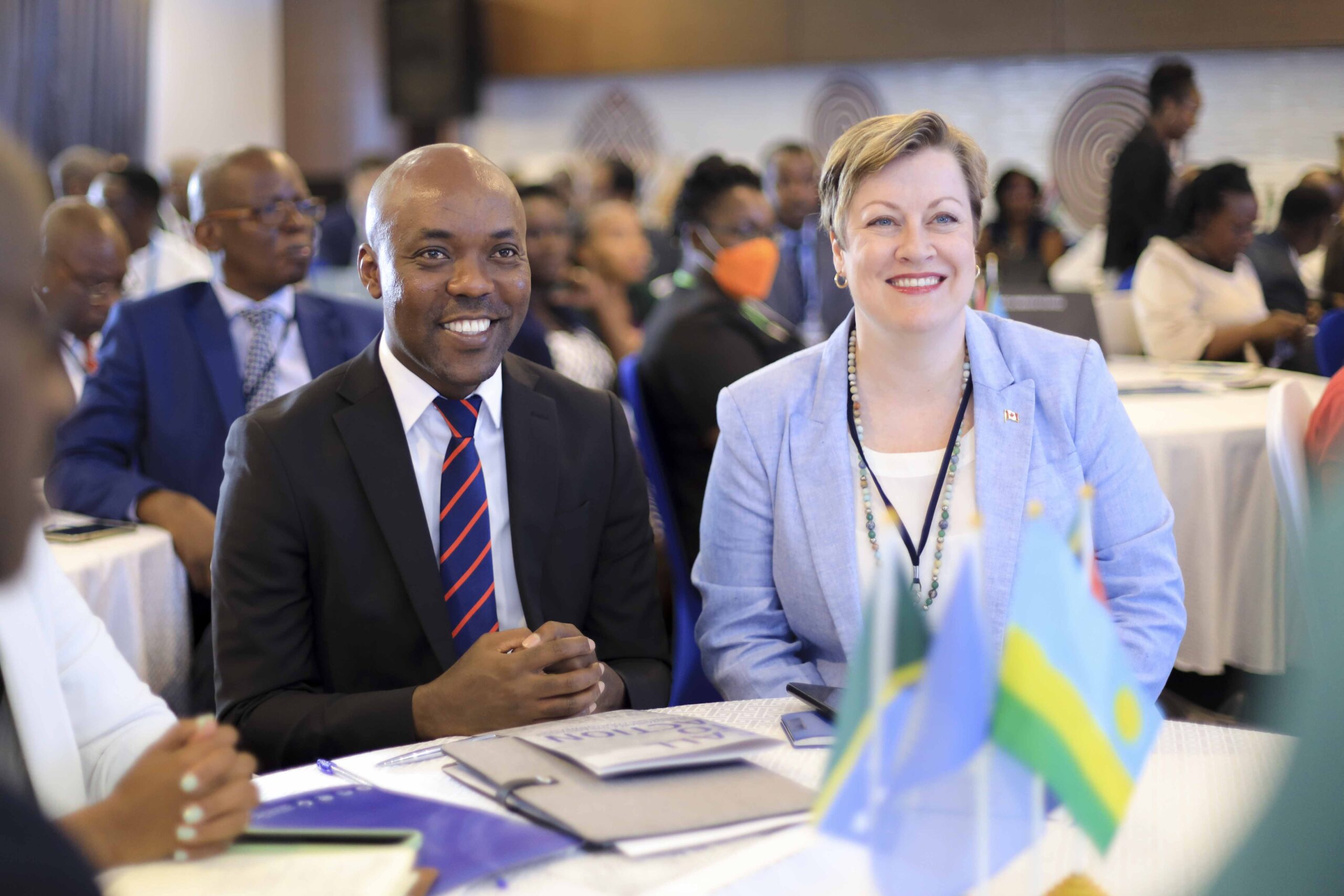
The Hon Dr Ernest Nsabimana welcomed the opportunity of being physically together to collaborate on the common goal of delivering the SDGs and New Urban Agenda. Touching on the need for decentralisation, citizen participation in decision making, financing, private sector involvement, partnerships, climate change mitigation and urban resilience, he provided the context and framework for the event. He emphasised that “Rwanda is keen on playing its role within the Commonwealth to help ensure a more comprehensive and coordinated approach to sustainable urban development.”
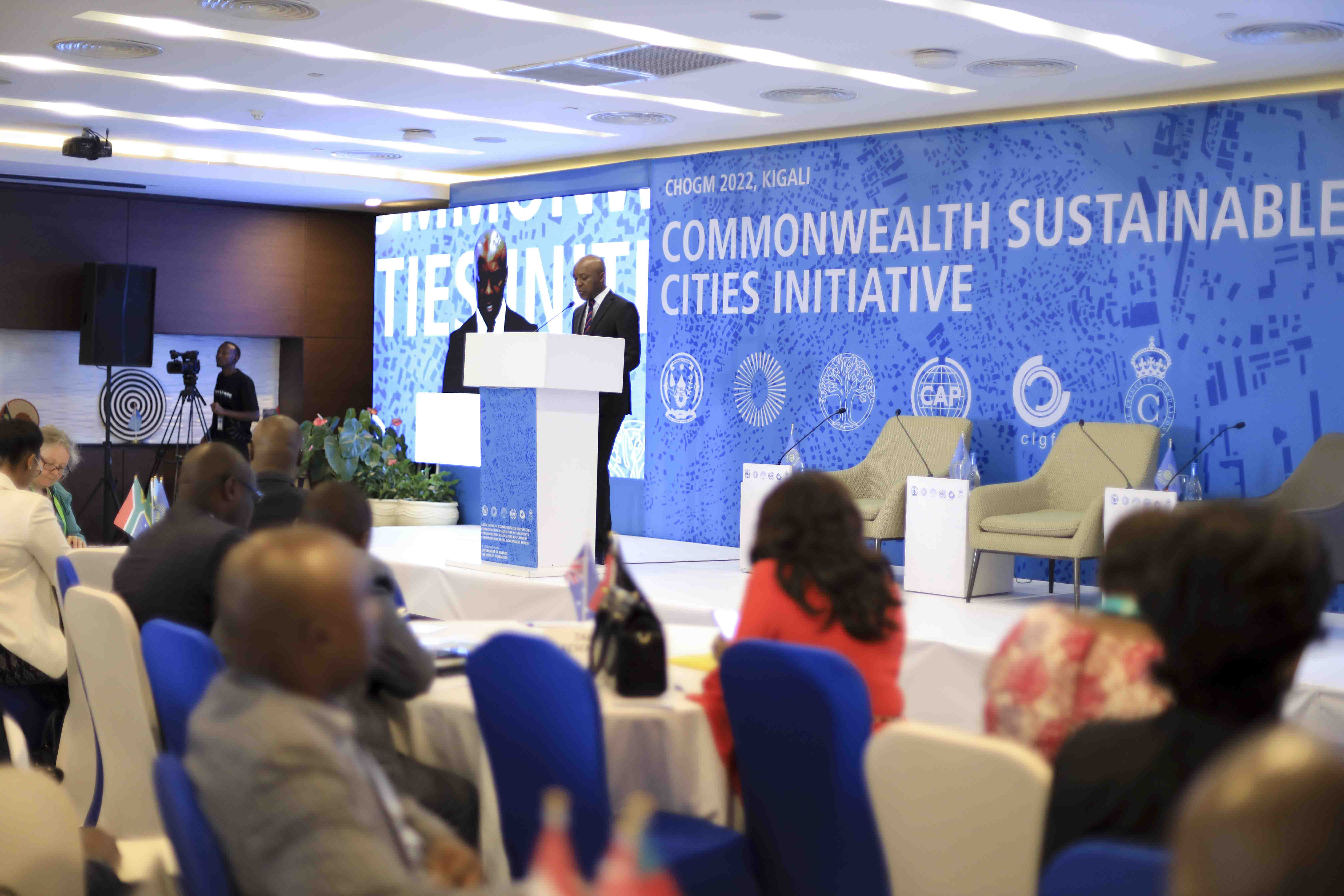
The recording of the Opening Remarks and Background on the Call to Action follows:
09.15 Background to the Call to Action
Presenter
Ms Lucy Slack, Secretary General Commonwealth Local Government Forum
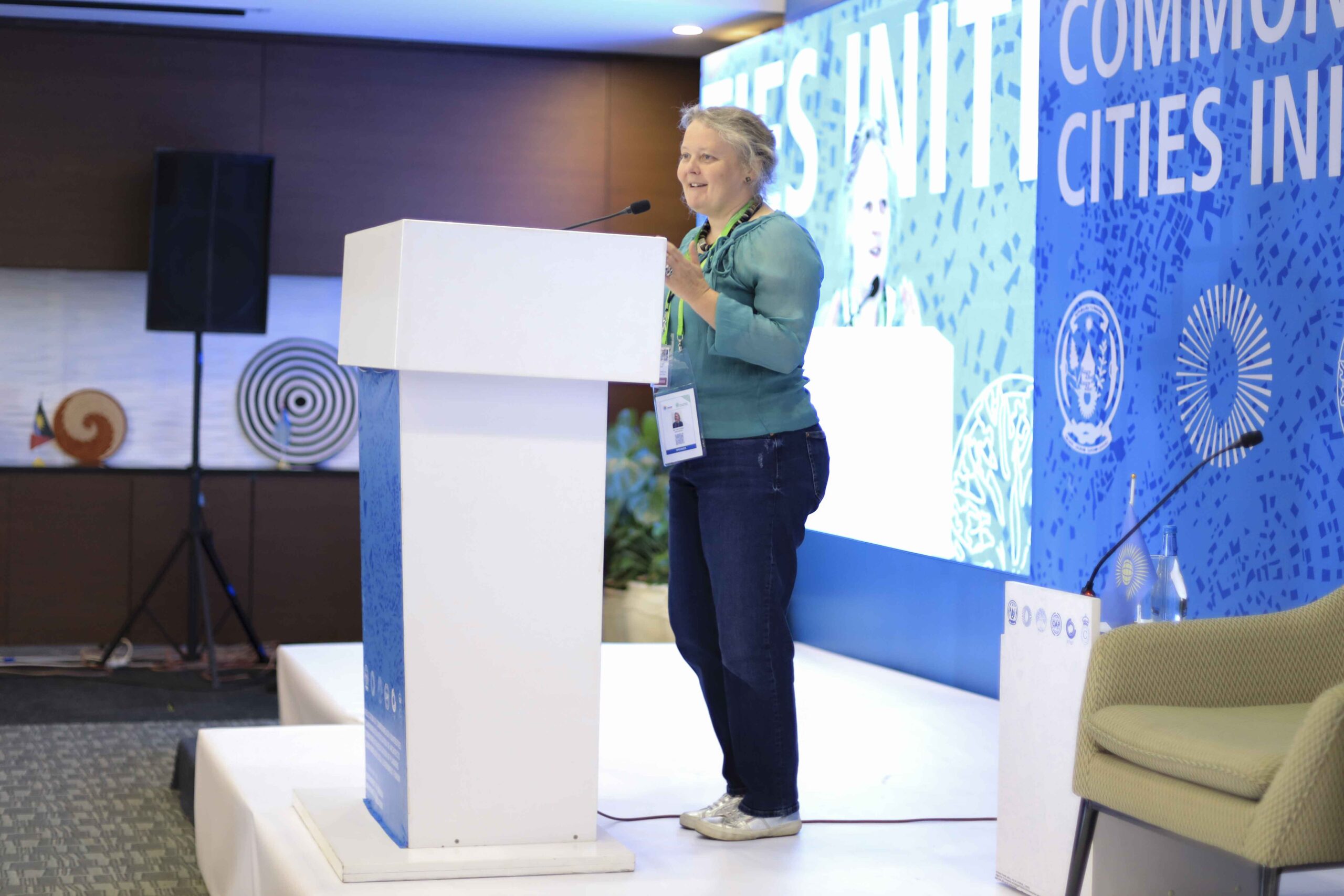
In sharing further context on The Call to Action on Sustainable Urbanisation across the Commonwealth, Ms Lucy Slack reiterated the urgency of the challenge, the need for multi-level, multi sectoral partnerships and resourcing across the Commonwealth, and the ever-pressing need for practical action on the issues.
09.30 Panel 1: Leaving no-one behind (‘People’)
Whilst cities are centres of opportunity, to be truly successful they must serve the people who live and work in them. This is not the case across the Commonwealth, and with 95% of the projected growth in cities to 2050 forecast to take place in Africa and Asia and over 60% of the urban population in sub-Saharan Africa already living in slums and informal settlements, the challenges of the rapid urbanisation megatrend and its attendant socio-economic and environmental issues continue to exacerbate existing inequalities. Against this backdrop, Panel 1 considered the need for responsive and inclusive planning that provides basic services and affordable housing for all, within the context of a Commonwealth response aimed at meeting critical needs and leaving no one behind.
Moderator
Ms Astrid Haas, Urban Economist, Uganda
Case Study
Green City Kigali, Ms Teddy Mugabo, Chief Executive Officer, Fonerwa
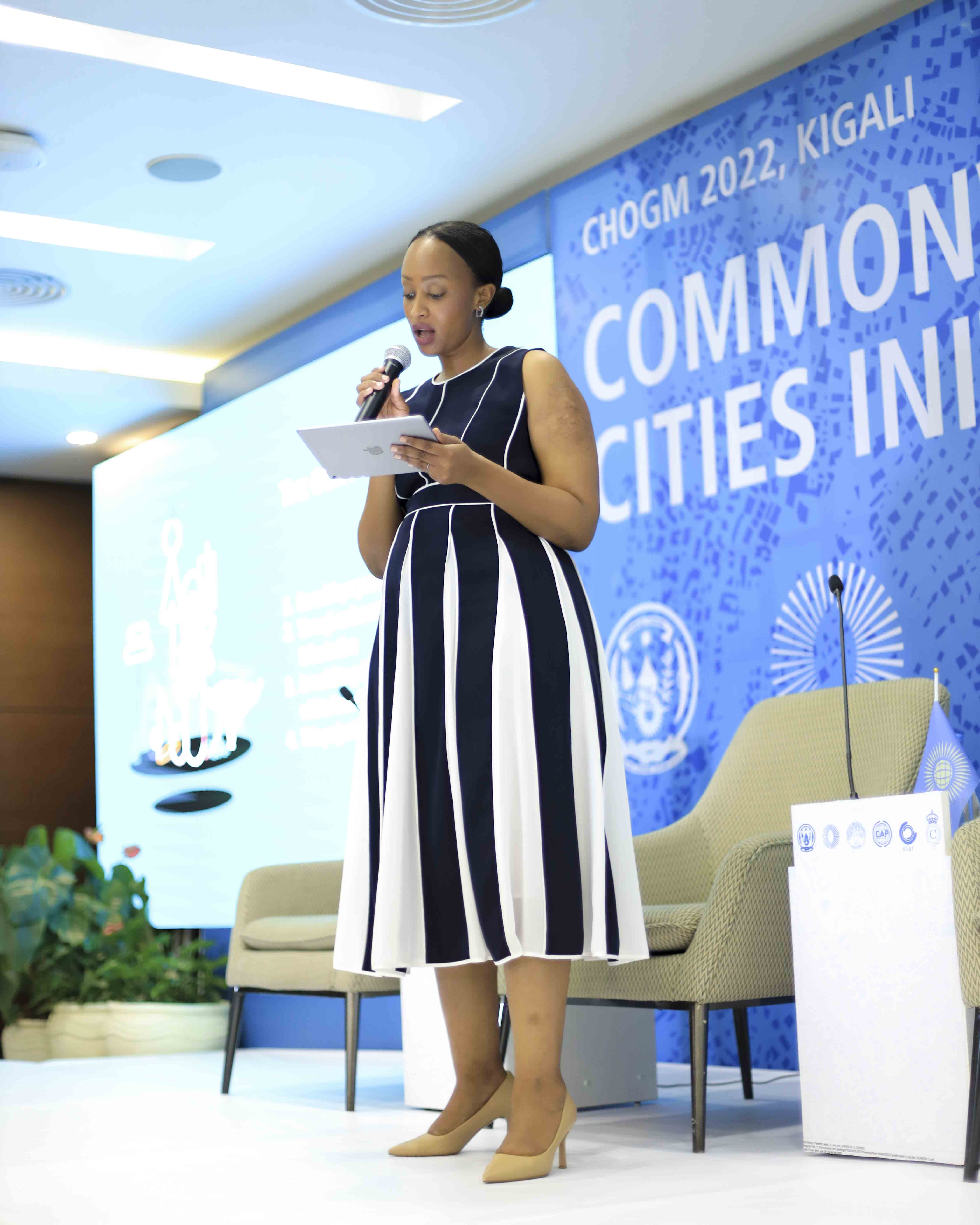
Green City Kigali is Rwanda’s pilot towards sustainable urbanisation. The project comprises a Green City Masterplan for a 600ha site in Kigali, the first phase of which will take the form of a 16ha mixed-use pilot. It is hoped that construction will start in 2023 on what has the potential to demonstrate practical, equitable and holistic solutions to the challenges of rapid urbanisation.
Panellists
Dr Beth Chitekwe Biti, Director of Secretariat, Slum Dwellers International, Zimbabwe
Mr Joakim Nyarangi, President, Kenyan Institute of Planners, Kenya
Mr Harjeet Singh, Climate Action Network, India
Ms Gertrude Rose Gamwera Aijuka, Secretary General, East African Local Government Association

The following were among the panellists’ key messages:
- Urbanisation needs to be seen an opportunity, not just a challenge.
- People and infrastructure are key drivers of sustainable urbanisation.
- However, the rights of the urban poor are not always respected nor supported, their role in subsidising cities is not recognised and they do not have access to wealth they have helped generate.
- While the urban poor contribute the least to greenhouse gas emissions, they face the brunt of the effects of the climate change emergency.
- Marginalised communities do not want handouts; they are partners with expertise and resources that can contribute to solutions.
- Putting those who are normally left behind at the center of decision making makes it possible for everyone to move ahead together.
- The diversity of marginalised communities and they ways they work must be understood to effectively respond to their needs.
- Planning provides an integrating framework for sustainable urbanisation and has the potential to enhance inclusivity.
- However, there is a need for enabling, responsive and sensitive urban policies that are bottom up and capacity building.
- Local government structures and systems need to be empowered and financed to effectively serve the people.
- The private sector needs to be involved in a way that is fair and accessible, particularly for those who are usually left behind.
- It is important to recognise the political economy of cities which often works against inclusiveness.
- Sustainable development must be considered across the rural to urban continuum e.g., why are rural livelihoods failing and forcing migration to cities.
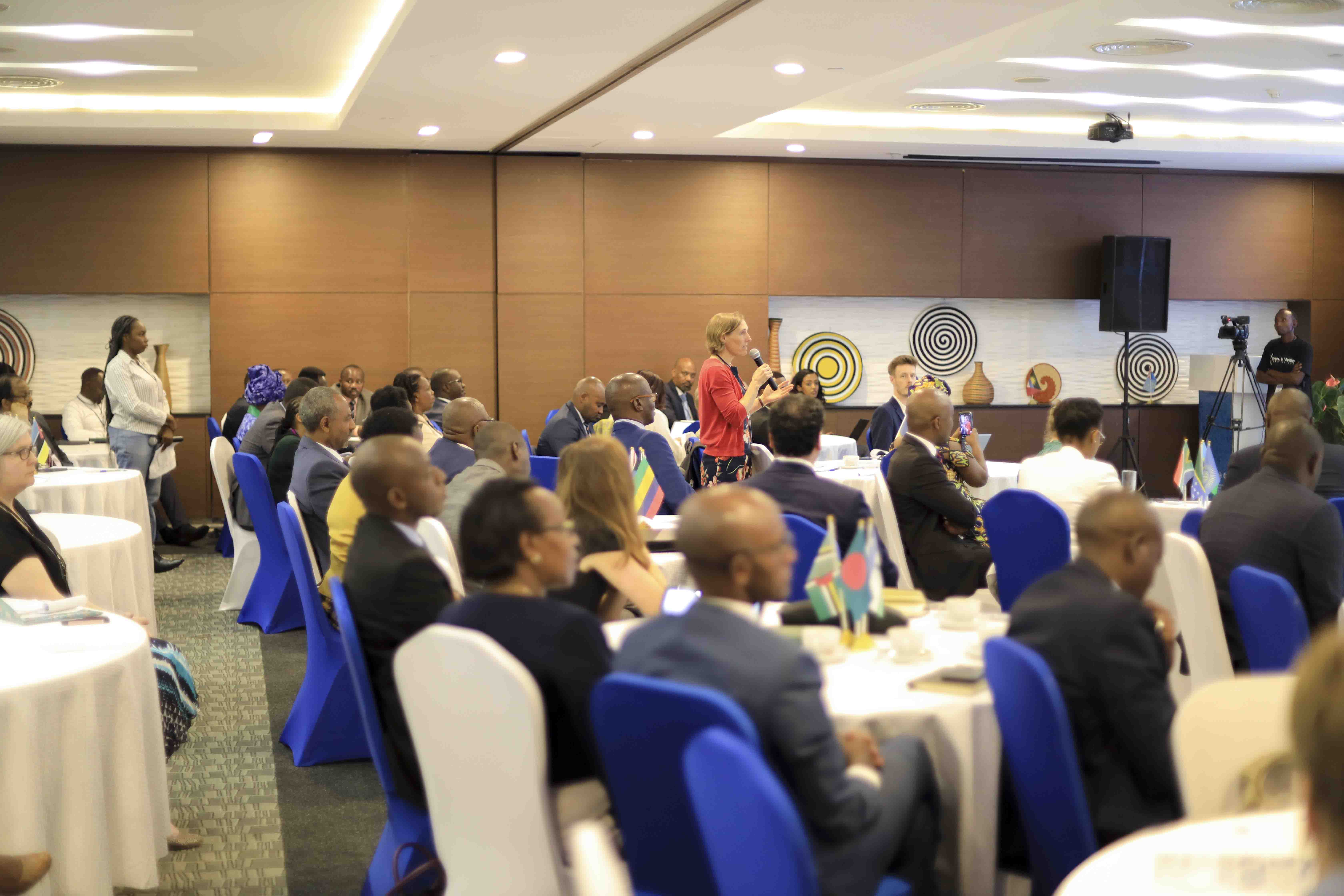
Panellists ‘priority actions’ follow:
- Scale up engagement between those focused on urban poverty and those focused on climate change to ensure that the vulnerability of the urban poor is considered holistically.
- Greater flexibility from local government when applying bylaws and policies to situations such as those found in informal settlements, where full compliance may simply not be possible.
- Prioritise effective, integrative urban planning by educating and sensitising policy makers and encouraging effective public awareness.
- Invest in urban policies, strengthen inter-governmental coordination, and revisit planning processes, which need to be bottom up.
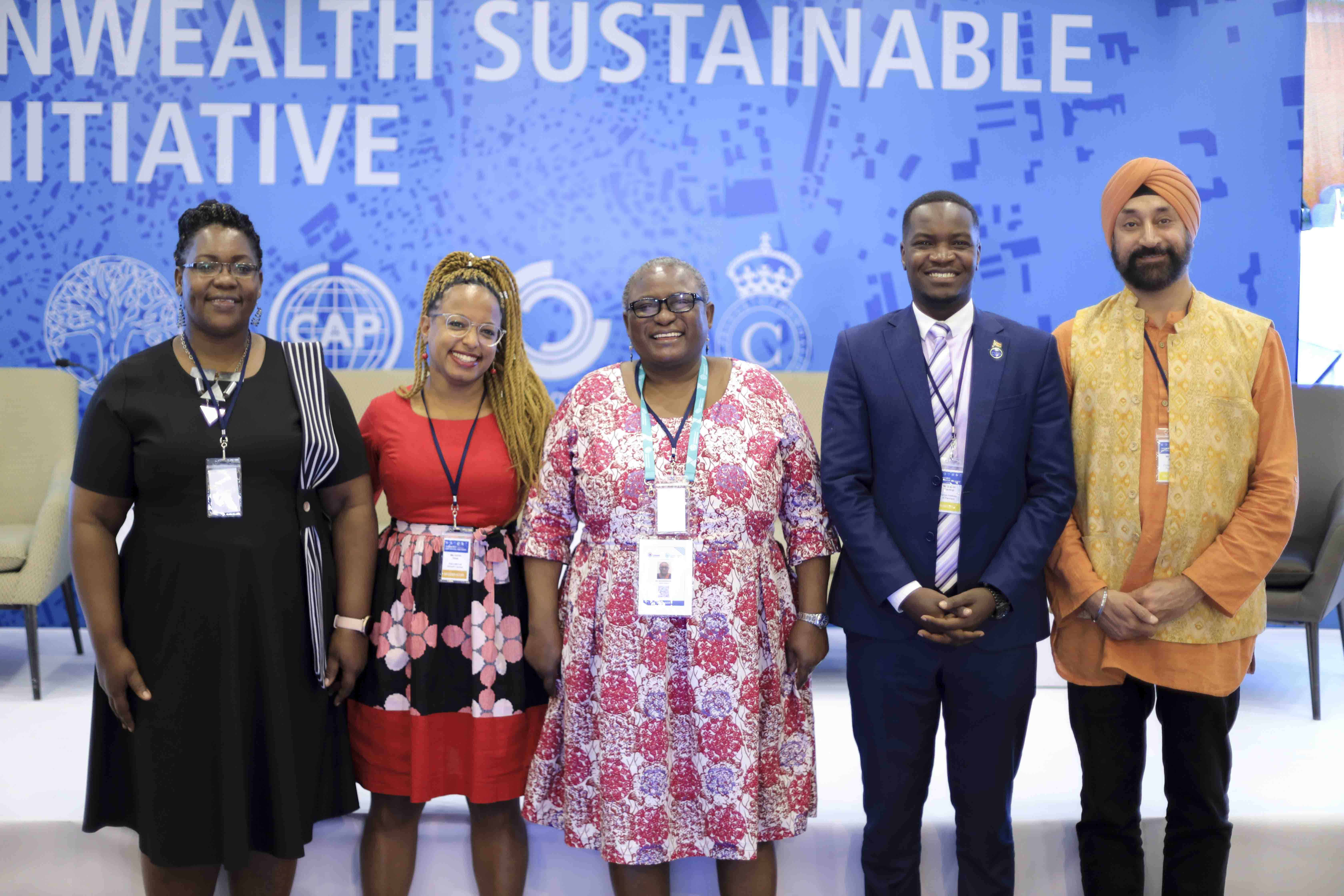
In concluding, Astrid Haas reflected that there is a need to do things differently because it has not been done well for the last 70 years and most have been left behind. With two thirds of cities on the African continent still to be built, there is a moral imperative to go forward in a different way. Focussing solely on the big changes that are needed can lead to inaction, hence the impetus for concrete action that can be implemented in the now.
The effective implementation of projects such as Green City Kigali will require strong leadership that gives voice to the voiceless, and who need to be better served by cities. As well, leadership needs to act, implement, and scale. This can be done through urban plans which take a bottom-up approach. Most importantly, people and communities within cities need to be seen as the core of cities, as resources within cities and not as ‘the challenge.’ As part of this, their diversity must be embraced as they are not just a homogeneous group, so that everyone can move ahead together in The Call to Action for Sustainable Urbanisation.
The recording of Panel 1 follows:
10.45 Coffee and Networking
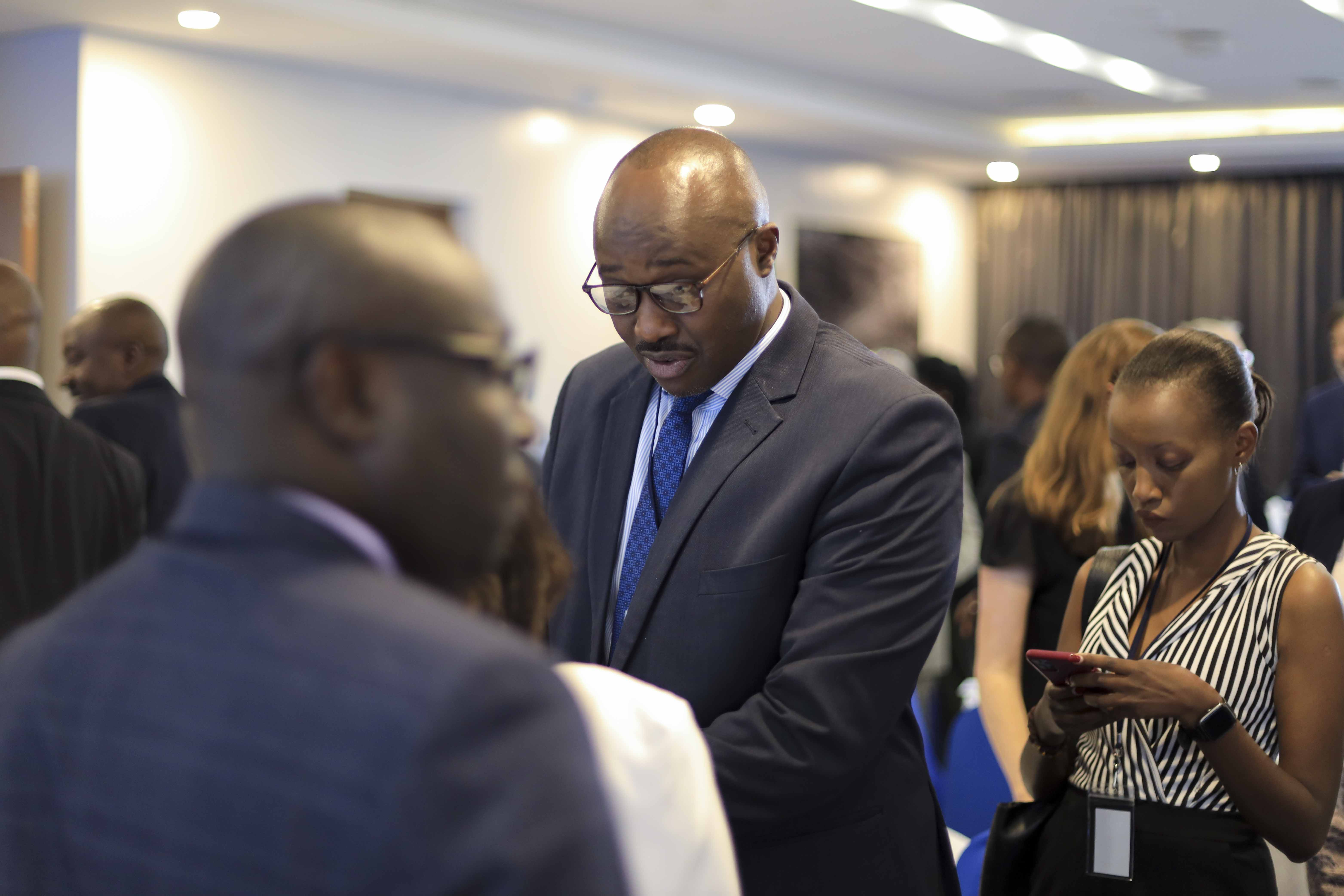

11.15 Panel 2: Accelerating Climate Action (‘Planet’)
Responsible for 70% of global carbon emissions, cities are the biggest drivers of climate change. At the same time, cities and their people are on the frontline of the impacts of and losses from climate change and will be for years to come. Hence there is an urgent need to not only limit emissions, but also to build climate resilient cities. Given the scale of the challenge, Panel 2 considered the potential for Commonwealth partners to work collaboratively to accelerate climate action and advance resilience within cities, whilst profiling actions and initiatives to meet critical needs.
Moderator
Ms Hellen Njoki Wanjohi Opil, Resilience African Cities Lead, UNFCCC Climate Champions, Kenya
Panellists
Ms Elizabeth Chege, Chair, World Green Buildings Council, Africa Region
Prof Peter Clegg, Senior Partner, Feilden Clegg Bradley Studios, UK
Prof Ian Rowlands, Associate Vice-President, International, University of Waterloo, Canada
Dr Lucy Stevens, Acting Director, Influence & Impact, Practical Action, UK
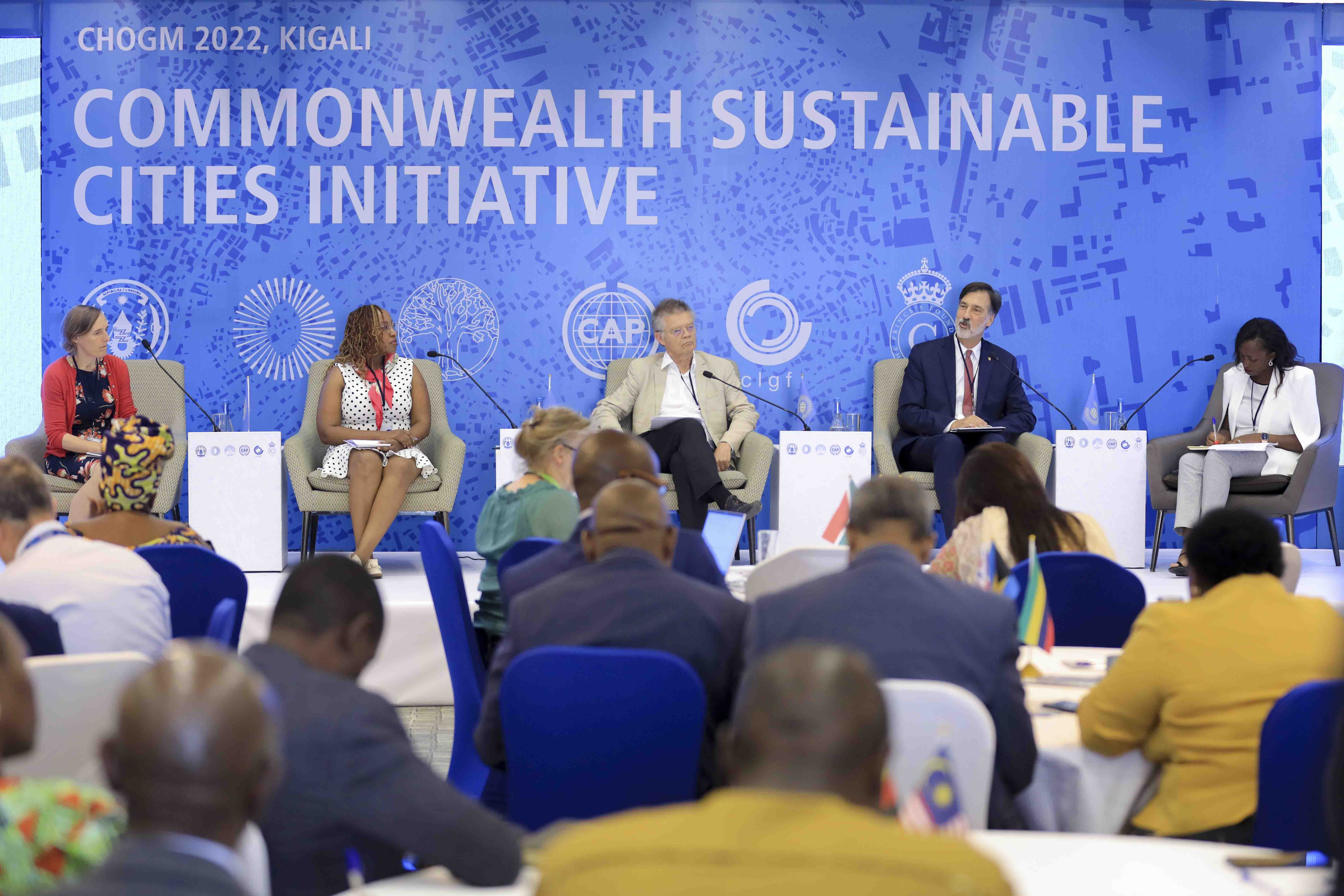
The following were among the panellists’ key messages:
- An energy transition focused on key sectors including energy supply, transportation, buildings, and waste needs to drive decarbonisation of cities.
- As part of this, a detailed and holistic understanding of carbon in the built environment (embodied and whole life) needs to inform the design of new buildings and the refurbishment of existing buildings.
- Climate actions must be embedded within broader, multi-level perspectives which integrate social dimensions such as finance, policies and belonging, and advanced through multi-level, multi-sectoral engagement.
- Higher education institutions have a key role to play in teaching future leaders and enabling lifelong learning for all, through innovative research and scholarship into cities and climate change and, scalable community building through action programmes and virtual learning.
- Sustainable urban design has a critical role to play in climate action across both the global north and south.
- Context appropriate considerations include density and carbon efficient building methods, respect for local culture, returning streets to people, incorporation of renewable energy, green and blue infrastructure, and urban agriculture.
- Whilst growing urban populations increase the demand for water and access to basic urban services at the same time as extreme climate event threaten urban water security, there are few plans focused on urban water security and less than 3% of global climate finance goes to water resilience.
- The magnitude of the challenge drives collaboration on advocacy, sharing of knowledge and best practice, and putting the most vulnerable at the heart of practical initiatives.
- Whilst Africa is the most rapidly urbanising region in the world, its land mass and young population present a key opportunity in planning for its future.
- Whilst finance is critical, it is possible to start with what currently exists using AI, science, and cross pollination of skills to build cities that resolve challenges seen elsewhere.
Asked what was most needed to accelerate climate action, panellists responded as follows:
- When collaborating, recognise that each stakeholder comes with its own constraints, opportunities, motivations, and incentive structures, so find the ‘sweet spot’ where all feel valued and heard.
- Understand and effectively use the power of the collaborative voice and highlight and share best practice in sustainability.
- Encourage Commonwealth countries to have dedicated Green Building Councils that focus on the built environment, to ensure that it stays part of the conversation and does not fall through the cracks.
- Actions focused on building resilience and ensuring that universal access to basic services must be locally led and people centred.
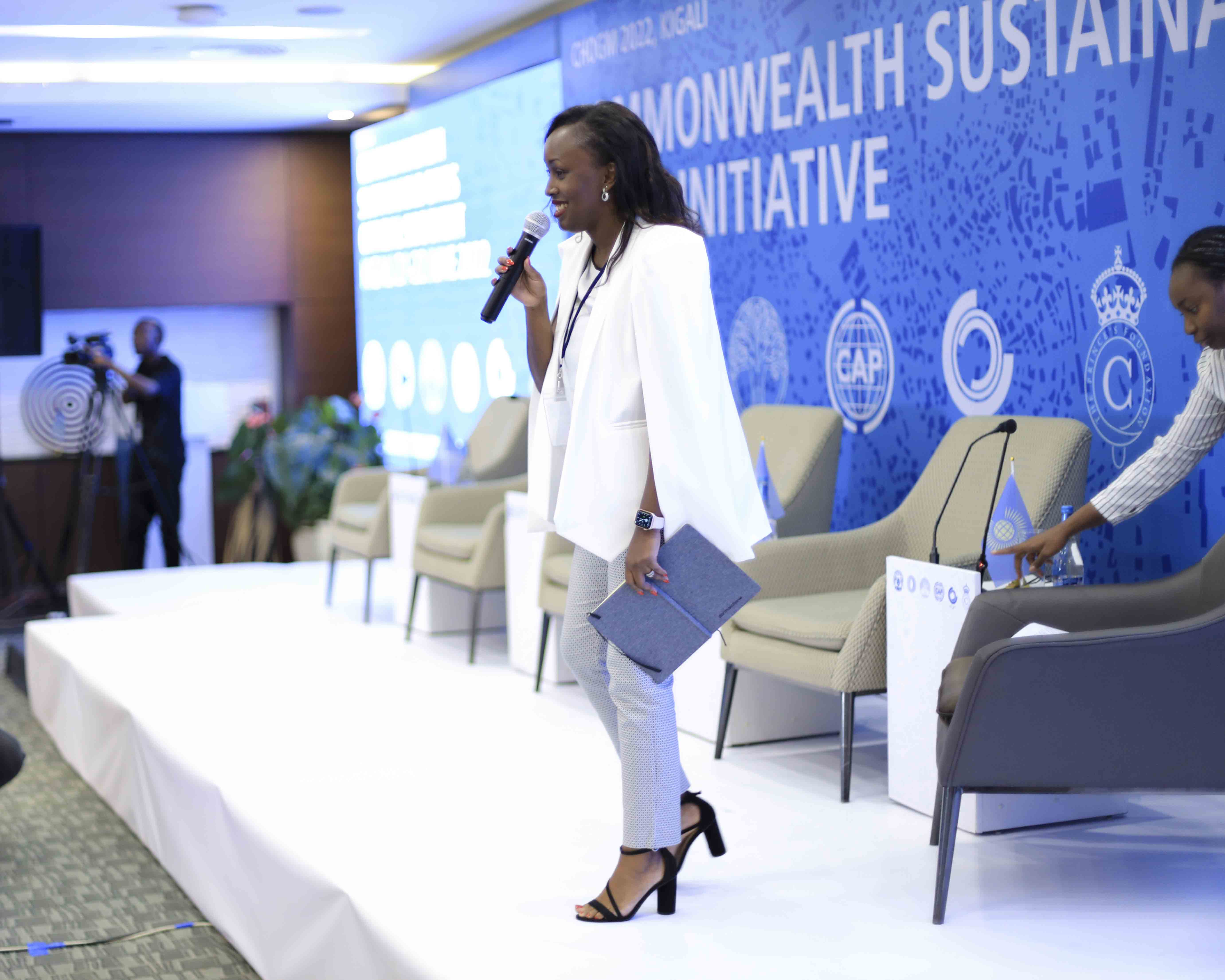
Hellen Njoki Wanjohi Opil concluded the panel with the following reflections. Vulnerable communities can thrive despite the climate emergency and cities can and must be part of the solution. However, there is the need to act faster and scale up together. Every aspect of planning must intentionally include those who are being planned for, so action serves those on the ground. Sharing best practice is beneficial as it allows for cross pollination of ideas. As well, there is a need for climate action mainstreaming across sectors.
Discussion on the issues needs to shift to a focus on action, showing what is happening and pushing for the scaling up of what is good. Finance for climate action is inadequate in both the global north and south, and public finance alone is not enough. The private sector has a crucial role to play in supplementing finance, supporting implementation, and in providing technical assistance e.g., to develop bankable projects.
The Commonwealth is a unique position to enable knowledge transfer in all directions through collaborative endeavours.
The recording of Panel 2 and the Urban Water Resilience Launch follows:
12.00 Urban Water Resilience Launch
Panellists
Mr Aklilu Fikresilassie, Director of Thriving Resilient Cities at WRI Africa
Dr Merard Mpabwanamaguru, Vice Mayor in Charge of Urbanisation and Infrastructure, City of Kigali, Rwanda
Mr Janvier Ramuli, Mayor of Musanze District, Rwanda
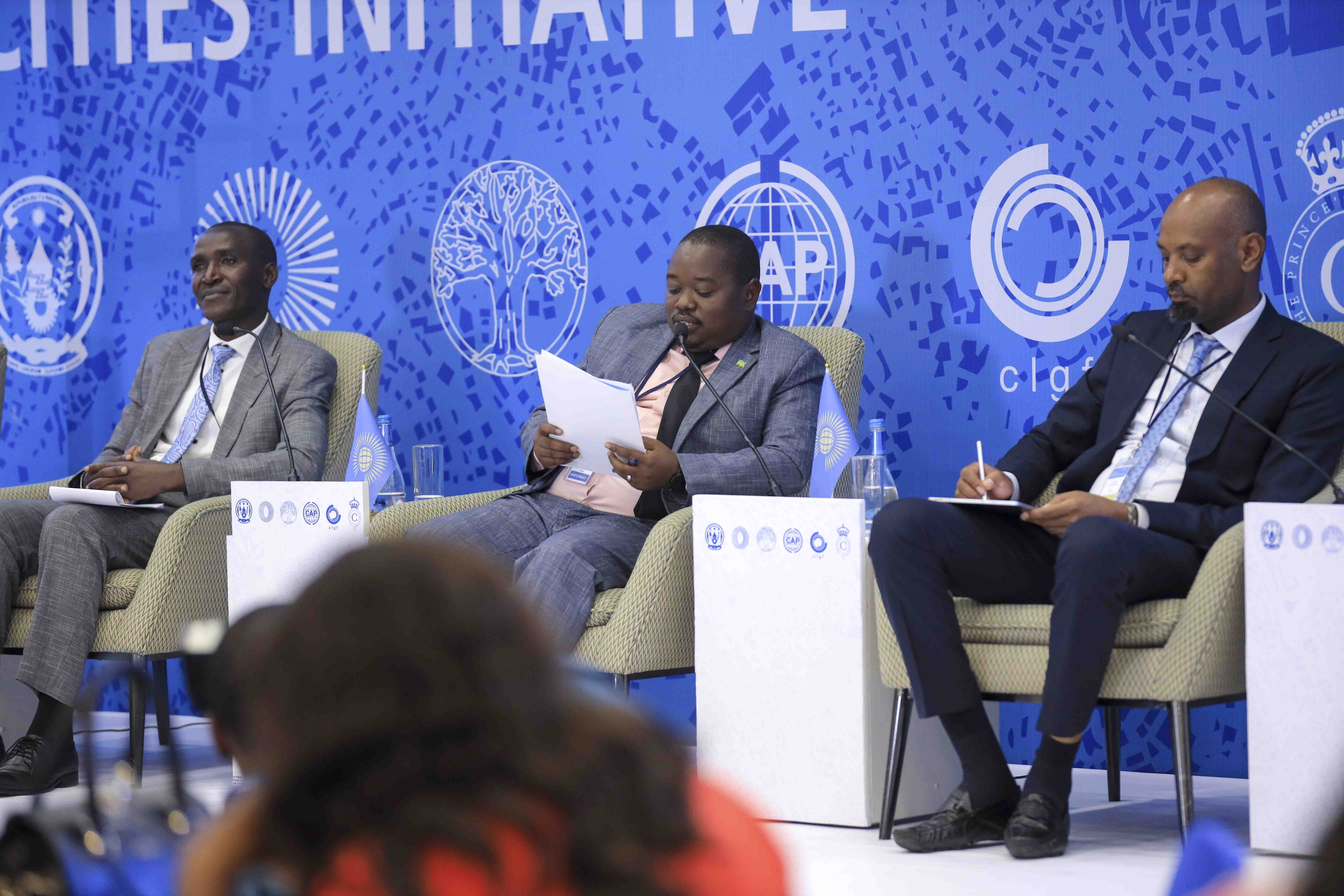
African cities are projected to grow by over nine hundred million people by 2050, with a 300% increase in water demand by 2030. The sheer scale of the challenge calls for an innovative approach to achieving urban water resilience, based on an understanding of city regional water and climate risks, and prioritising ‘green and grey’ investments that can build resilience, particularly for the most vulnerable. Together with partners, WRI is helping cities to move from just water supply, towards water sensitive and resilient cities. Currently active in six cities, the initiative is working at bringing the various actors together to support better planning, identification of key action areas, with funding for projects through the African Cities Water Adaption (ACWA) Fund. WRI and partners are also working to develop a joint agenda to provide critical funding to enable progress toward urban water resilience.
12.25 Discussion and Summing-up
Moderator
Mr Richard Grubb, Head of UN, Commonwealth and Strategic Partnerships, ACU, UK
Discussants
Ms Astrid Haas, Urban Economist, Uganda
Ms Hellen Njoki Wanjohi Opil, Resilience African Cities Lead, UNFCCC Climate Champions
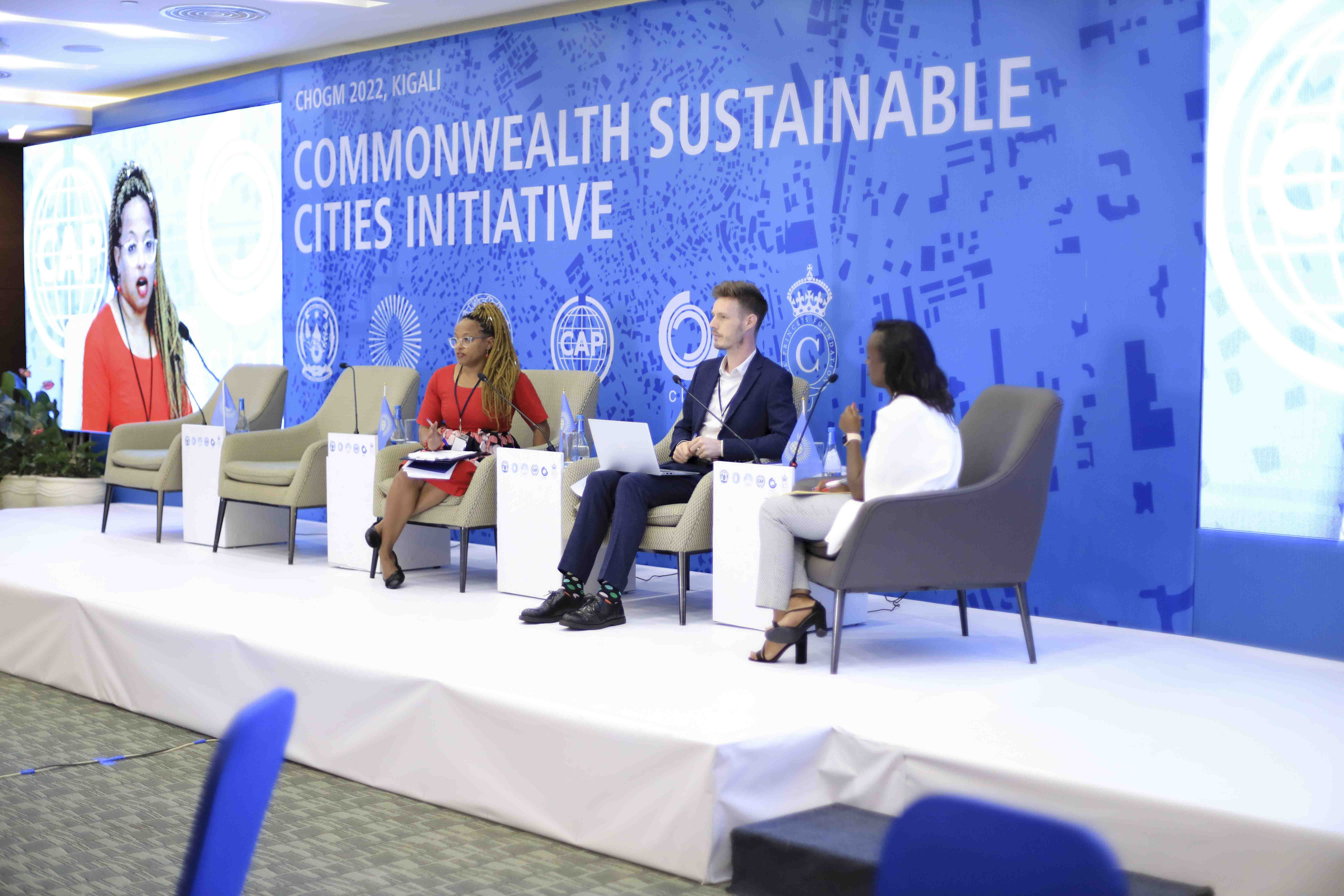
13.00 Lunch and Networking
14.00 Panel 3: Closing the Gaps: Data, Evidence and Policy
The effective planning and management of rapidly urbanising cities and human settlements requires sound, evidence-based policies underpinned by good governance and informed by reliable data. As well, data is needed to prioritise project interventions on account of resource constraints. However, many cities across the Commonwealth do not have access to good data for policy making, and to inform interventions that address the real needs and priorities of people. In response to the issues, Panel 3 considered how Commonwealth partners can work together to collect data, share good practice, use new technology, and develop scalable solutions to better support city leadership and the role of universities and other partners, whilst profiling actions and initiatives to meet these critical needs.
Moderator
Dr Shipra Narang Suri, Chief Urban Practices Branch, UN Habitat, Kenya
Panellists
Mr Shah Rukh, Urban Economist, International Growth Centre, Pakistan
Mr Matthew Goodman, Head of External Affairs, Ordnance Survey, UK
Mr Ladislas Ngendahimana, Secretary General, Rwanda Association of Local Government Authorities, Rwanda
Ms Kelley Moore, Secretary General, Commonwealth Association of Planners, Canada
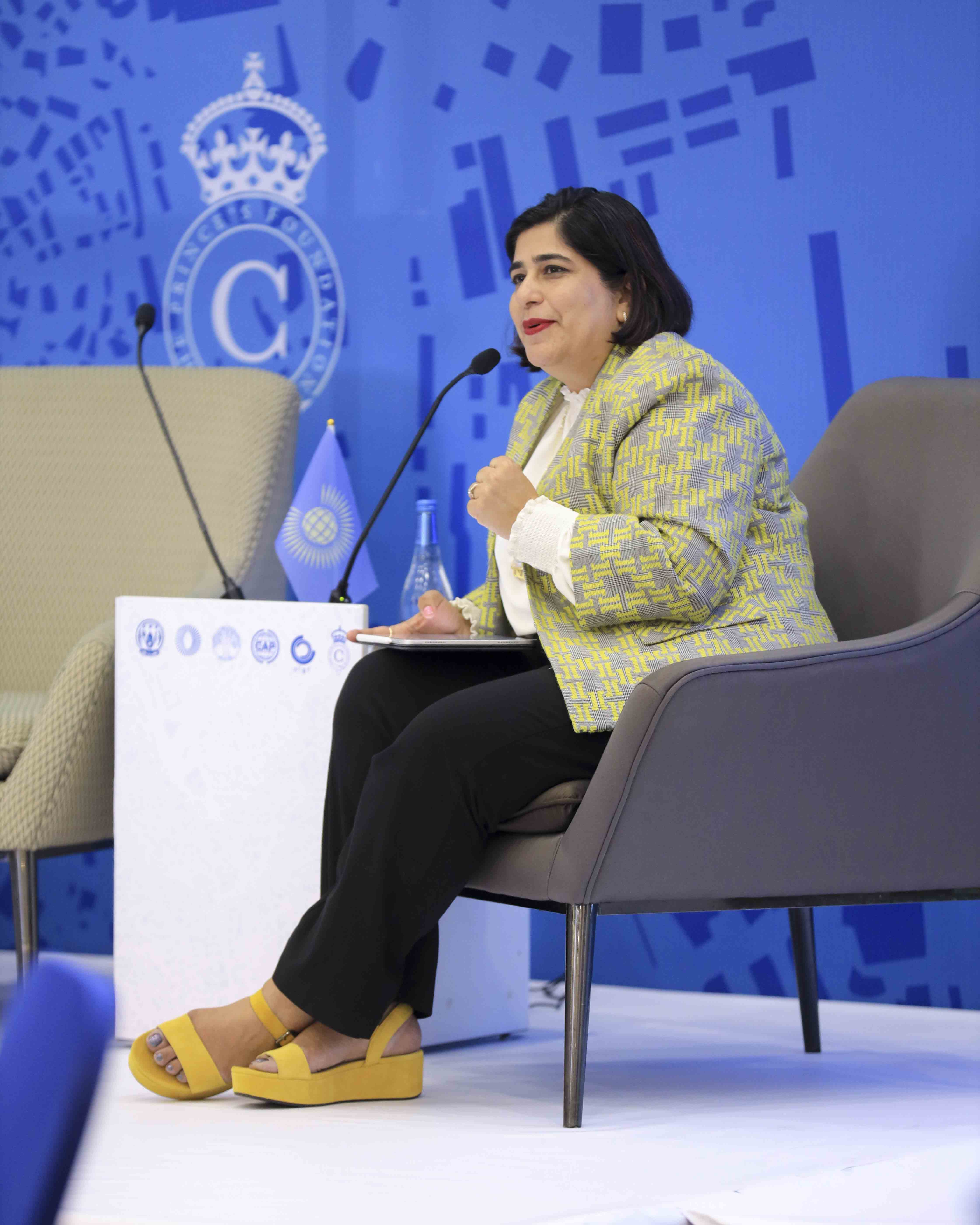
The following were among the panellists’ key messages:
- Whilst urbanisation is happening at lower income levels than in the past – meaning governments have potentially less resources – it is taking place in a data rich environment, which is an opportunity to inform decision making.
- Geospatial data allows various forms and types of data to be brought together in one place in more efficient and effective ways, which can be scaled, shared, and replicated.
- As part of a broader policy toolkit for planning for mitigation and adaptation, making decisions on investment, and evaluating impacts, data can also assist in identifying gaps in the structures needed to achieve sustainable urbanisation.
- On its own however, data does not guarantee effective policy; it needs to be matched with having the right institutions in place with the appropriate capacity, and ethical standards to guide how data is used and for what end.
- Whilst challenging, behavioural change is needed as problems cannot be addressed by the same mindsets that created them.
- Building common purpose, both within the state and private urban institutions, can enhance the effectiveness and efficiency of policy which can in turn contribute to moving everyone ahead together.
- Within the state sector, the different levels of government need clearly defined roles and responsibilities to ensure streamlined delivery, as well as technical and administrative capacity building.
- Professional bodies can support government entities in translating visions and policies into implementable strategies.
- At the centre of sustainable policy development and implementation is community ownership and empowerment.
- One size does not fit all, hence policies need to be customised and localised, which calls for innovation and collaboration.
- Beyond policy development, there must be implementation, the effectiveness of which should be assessed through monitoring, which in turn requires data, partnership, and collaboration.
- The Commonwealth family has a critical role to play in setting standards.
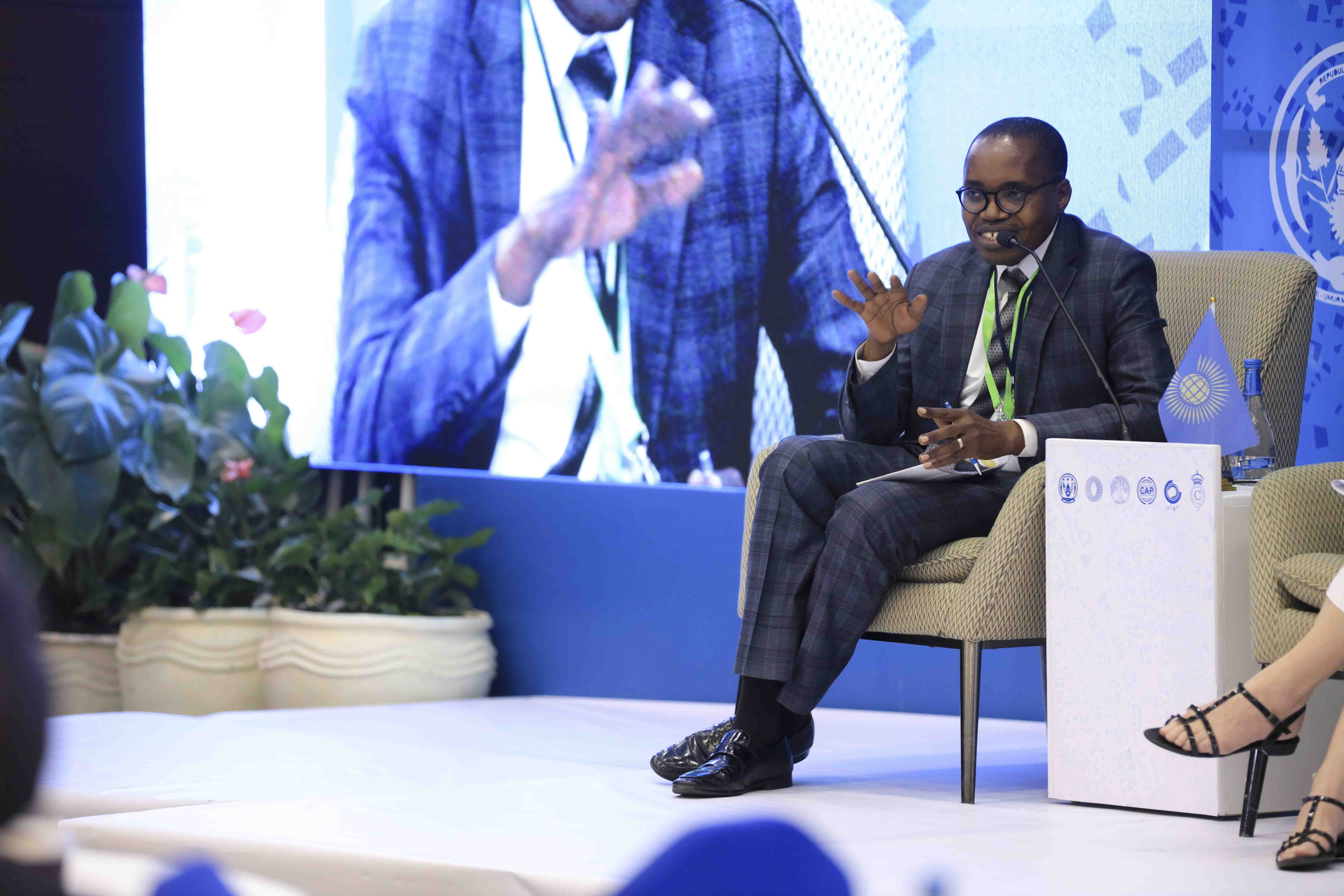
Lusaka Mapping Pilot
A collaboration between Ordnance Survey, the International Growth Centre, and the Commonwealth Association of Architects with the Zambian Ministry of Local Government and the Ministry of Land and Natural Resources, the project used AI and machine-learning to develop a digital base map of Lusaka comprising over 400sqkm and 300,000 built structures The map was produced in 10% of the time that would have been taken using traditional surveying techniques and provides an invaluable tool to help support improved decision making and investment priorities going forward.
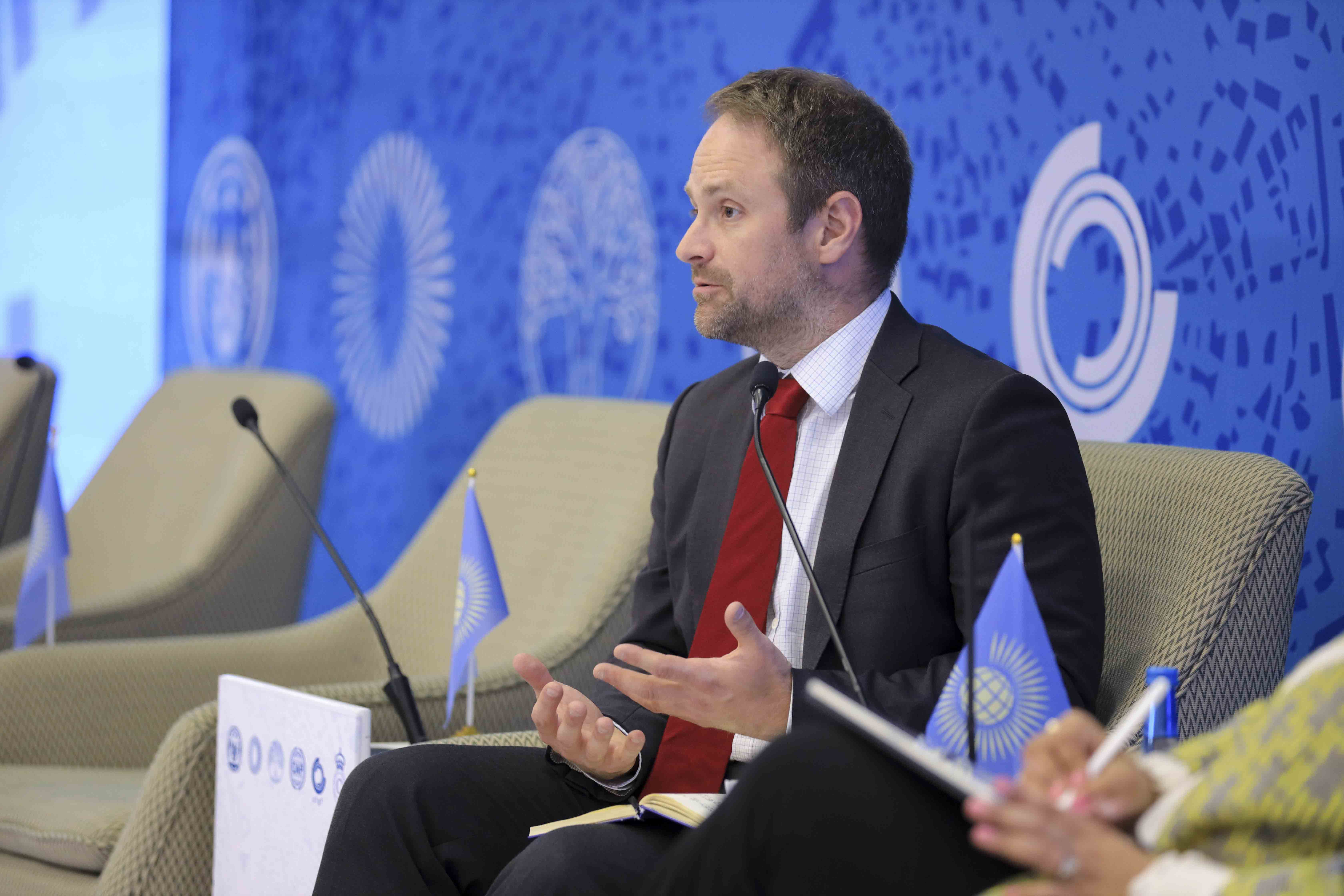
Survey of the Built Environment Professions in the Commonwealth
The landmark Survey of the Built Environment Professions in the Commonwealth (June 2020) assessed how equipped architects, engineers, town planners, and surveyors in the Commonwealth are to meet the challenges of population growth and climate change mitigation and adaptation and respond to SDG11. With responses from 33 countries spanning 5 regions of the Commonwealth, it revealed:
- A critical lack of capacityin several Commonwealth countries, many of which are urbanising rapidly and are among the most vulnerable.
- A corresponding lack of educational and institutional capacityto grow the profession fast enough.
- Perceived weakness in built environment policyin terms of standards, implementation, and enforcement.
These responses clearly identify critical gaps in built environment capacity which need to be addressed as part of developing momentum around The Call to Action on Sustainable Urbanisation across the Commonwealth.
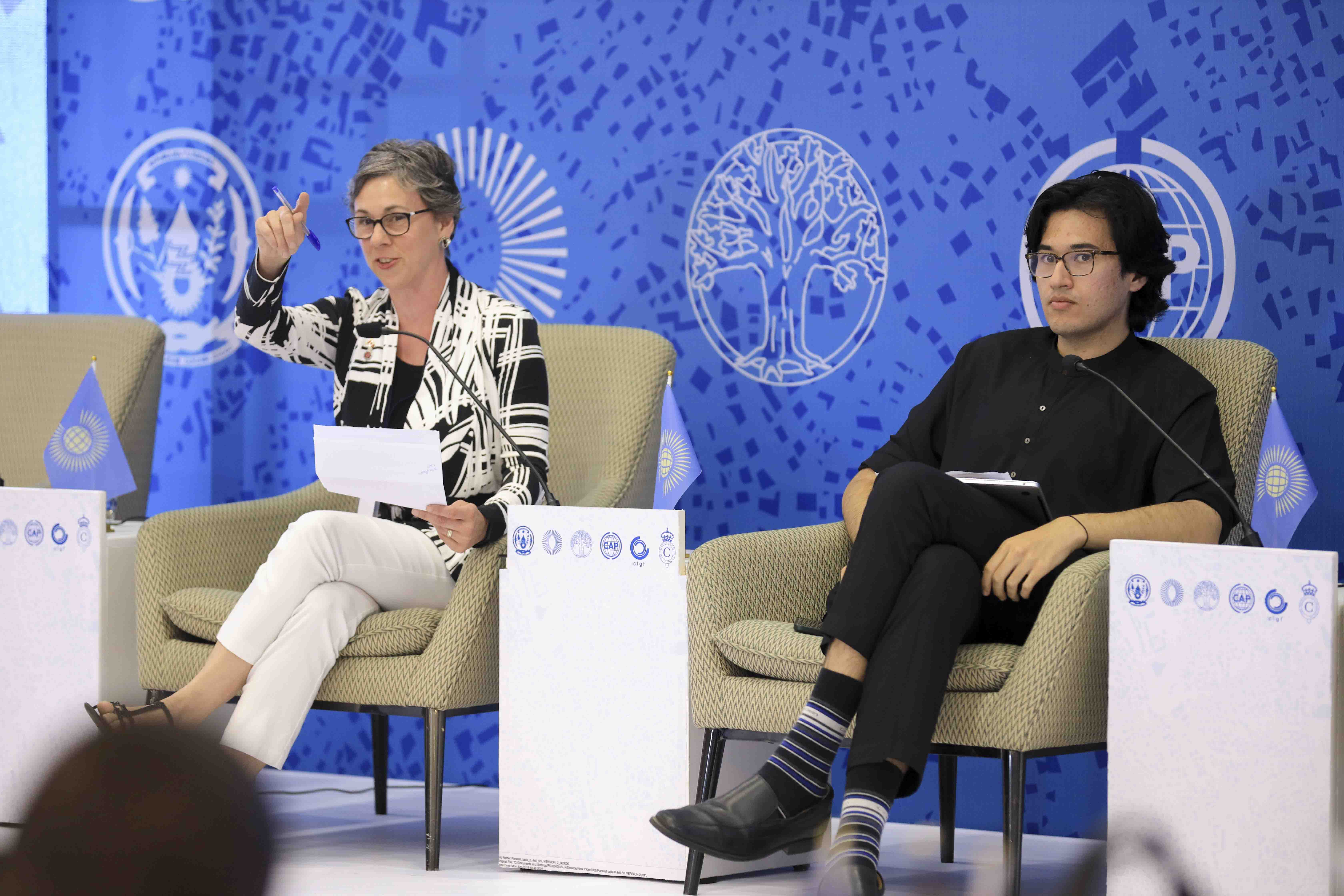
Shipra Narang Suri concluded with the following reflections. Whilst necessary, data is but one piece of the policy puzzle. Data itself needs to be relevant, current, credible, and fit for purpose. It needs to be findable, accessible, interoperable, and reusable, hence the question of whose data is it is important. As well, data is not static and needs to be maintained, so who does this is important as it has implications for the distribution of power. Standards and agreements on fair use of data would be beneficial and could be considered across the Commonwealth. Critically, there is a need for capacity building in the use of data and related ethics as inputs into policy will directly influence their quality, implementability and impact.
The recording of Panels 3 and 4 follows:
15.45 Panel 4: Closing the Gaps: Addressing the Capacity Gap
Progress on sustainable urbanisation requires people with the appropriate skills. However, surveys and the consultations that led to The Call to Action highlight a critical lack of professional and leadership capacity in many of the Commonwealth countries which are urbanising most rapidly and are among the most vulnerable to climate change impacts, especially secondary or intermediary cities. Given the scale of the challenge, Panel 4 reflected on the ways in which Commonwealth partners can come together to address the capacity gap in innovative ways, whilst focusing on the changes and partnerships required to improve the ability of cities to deliver.
Moderator
Mr Richard Grubb, Association of Commonwealth Universities, UK
Panellists
Ms Raphaelle Vignol, Capacity Development and Training Unit, UN Habitat, Kenya
Mr Allan Pollard Jr, Deputy Mayor, Belize City Council, Belize
Ms Haja Halimah Lukay, Development & Planning Officer, Bo City Council, Sierra Leone
Madam Catherine Nfor, Technical Advisor, Ministry of Decentralization and Local Development, Cameroon
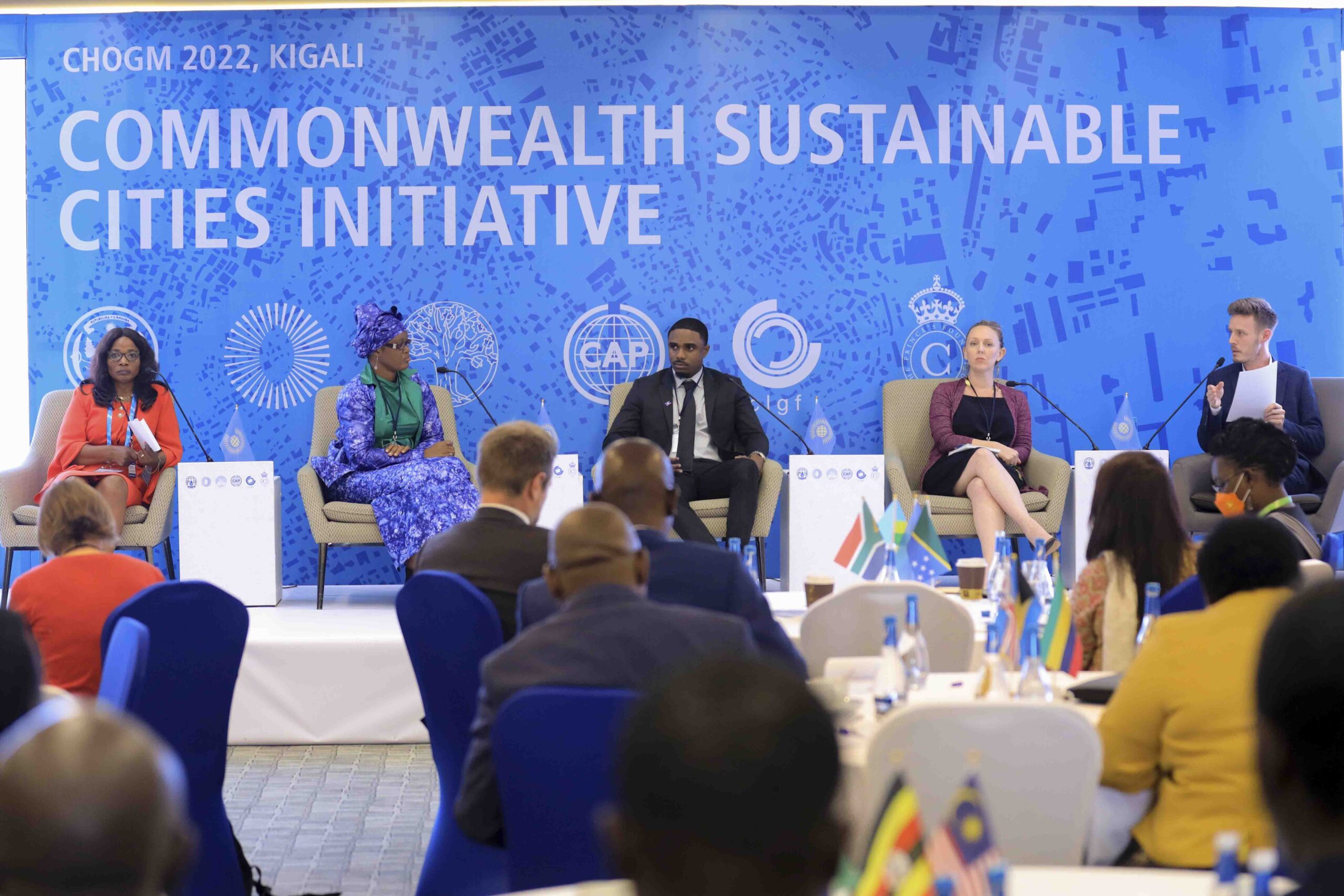
The following were among the panellists’ key messages:
- There is a need for continuous prioritisation and planning at all levels of urban governance to identify capacity gaps.
- Meeting the needs of intermediary cities and centres of settlement is critical as they are growing rapidly yet often lack capacity to deal with the impacts of rapid urbanisation and climate change.
- Whilst gaps exist, it is important to empower and build on existing human resources within local government, the built environment professions, and local communities.
- Digital innovation brings the potential for new ways of bridging the capacity gap, allowing for the upscaling of best practices and tools in addressing urban issues, and transferring practical and action-oriented knowledge to more beneficiaries.
- Related to this, universities around the world are developing blended or hybrid learning programmes, including more accessible self-based online courses, with digital platforms enabling the creation of connections between knowledge and issues.
- Strengthening capacity is not an end in itself; its objective is to support and enable a more efficient and effective response to the challenges of rapid urbanisation and climate change, to better serve and improve the lives of people.
- Successful governance requires effective communication and collaboration between politicians and technical experts within and outside of government entities.
- Local stakeholders, especially the marginalised, are a source of knowledge and innovation, and can assist in bridging the capacity gap.
- Greater inclusivity in policy development and decision making requires a change in mindsets.
- As well, engagement of stakeholders requires culturally sensitive approaches which respect local knowledge and use language which is appropriate and inclusive.
- With 60% of the population of the Commonwealth under the age of 30, young people are key stakeholders.
- Multi-disciplinary partnerships which tap into all sectors, can build stronger links between academia, local government, and the built environment professions in the interests of accelerating knowledge sharing and skills development, reducing time and maximising resources.
- Robust and fit for purpose legal instruments and structures support decentralisation and the empowerment and funding of local governance.
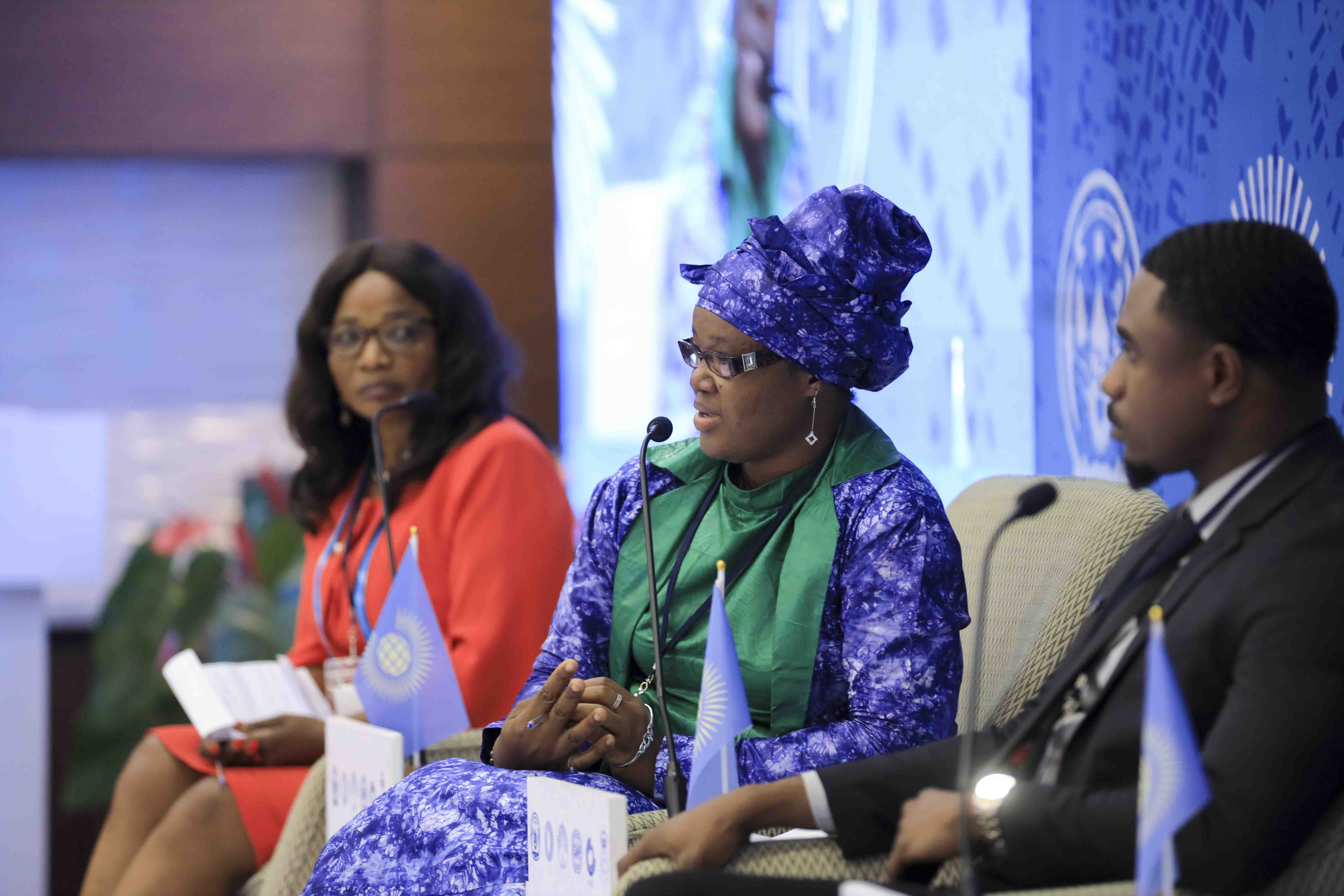
Rapid Planning Toolkit, Pilot Project in Bo, Sierra Leone
The Rapid Planning Toolkit is a simple and practical 4-step tool, each entailing 3 key activities. It is intended to assist city leaders and built environment professionals in responding to rapid urbanisation, bringing stakeholders together to create an urban plan. Collaboration between the local authority and community has helped raise awareness and understanding of the issues, which has empowered the community and increased responsibility by the various stakeholders to work together on sustainable urbanisation. The team in Bo completed the first 3 steps in just under 9 months, with testing on the fourth step currently underway.
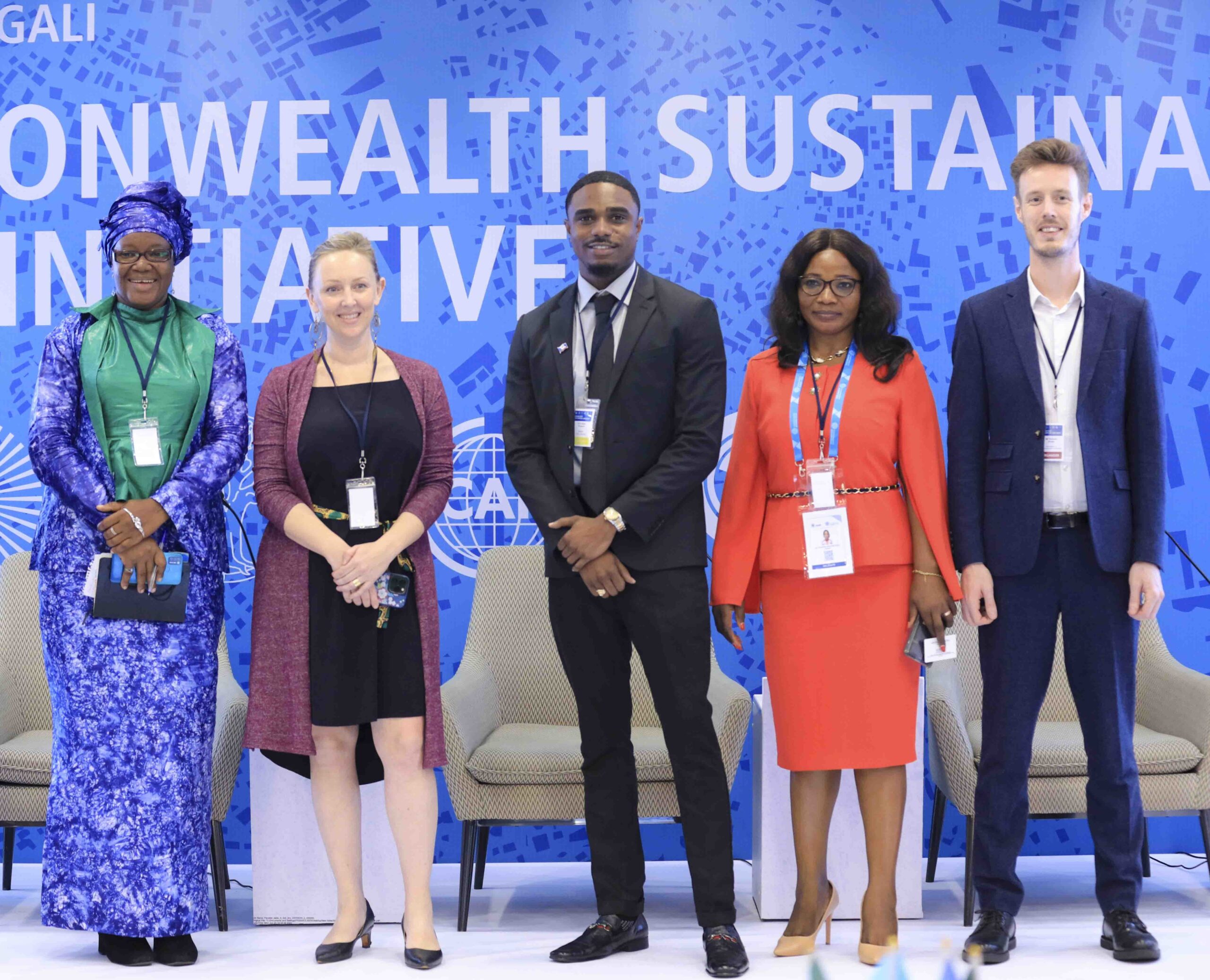
Richard Grubb concluded the panel with the following reflections. Given the speed of urbanisation, there is an urgent need for practical solutions to address capacity gaps across the Commonwealth, given the ever-changing playing field. To be effective capacity building must be customised and localised. Digital technology provides game changing opportunities to reach more people in innovative ways, whilst supporting continuous professional development and lifelong learning as part of larger scale programmes that target the right beneficiaries and develop more toolkits for rapid implementation.
Decentralisation that is embedded in law and gives local governments responsibility for policy development and clarity over financial autonomy is an important element of empowering local councils and communities. As well, networking, collaboration, and inclusivity allows for sharing of best practice and practical examples of sustainability which can be replicated and scaled across the Commonwealth. This goes to the heart of The Call to Action on Sustainable Urbanisation.
17.00 CYSU Network Introduction
Moderator
Ms Alice Preston-Jones, Senior Programme Manager, The Prince’s Foundation, UK
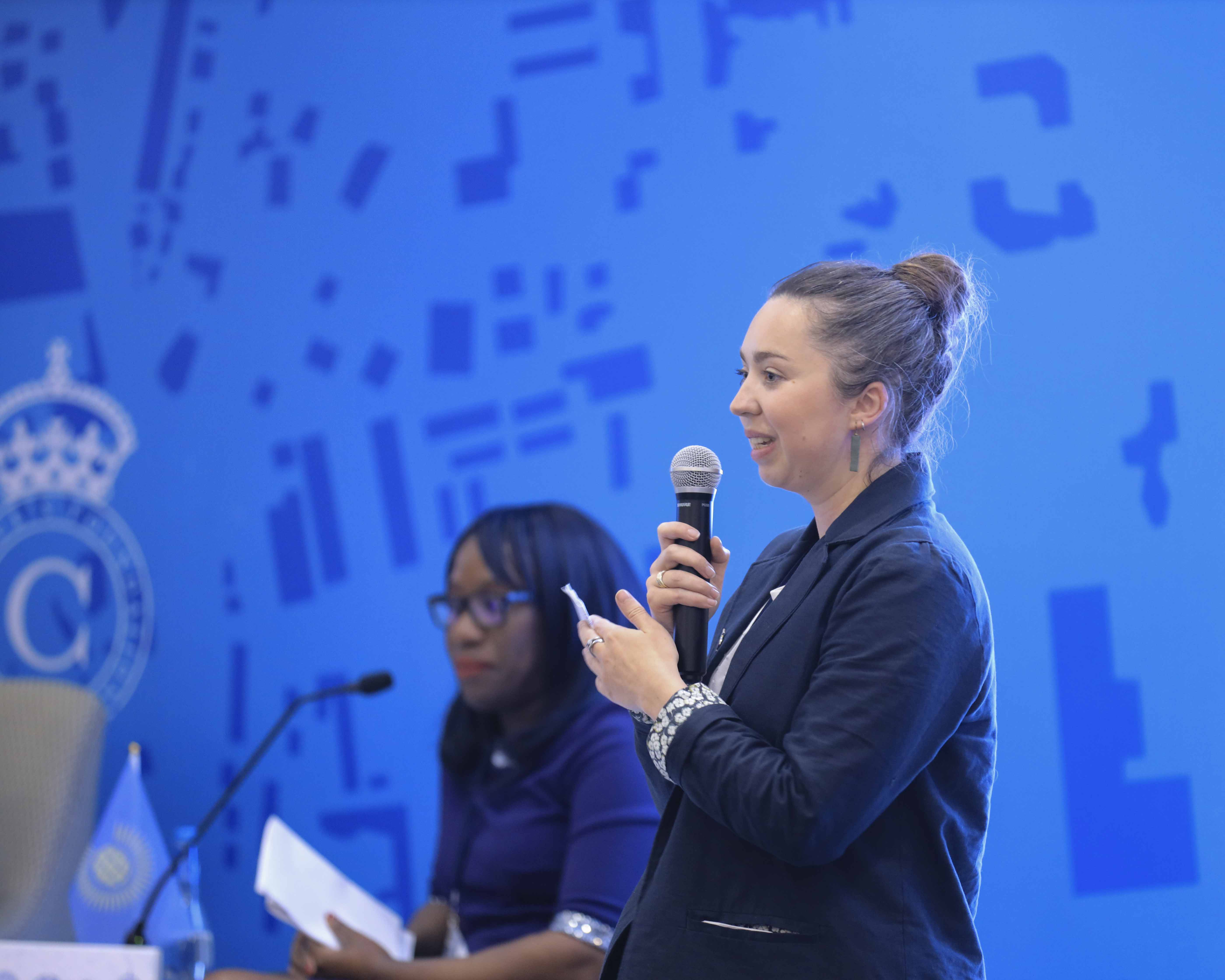
The Commonwealth Youth For Sustainable Urbanisation (CYSU) network was officially launched at the Commonwealth Youth Forum in Kigali on Sunday 19 June. The group comprises a multi-disciplinary group of young professionals (18-35) with an interest in Sustainable Urbanisation, and has already attracted over 400 members.
Its interim steering committee was introduced at the end of the Sustainable Urbanisation side event and was warmly received by the audience.
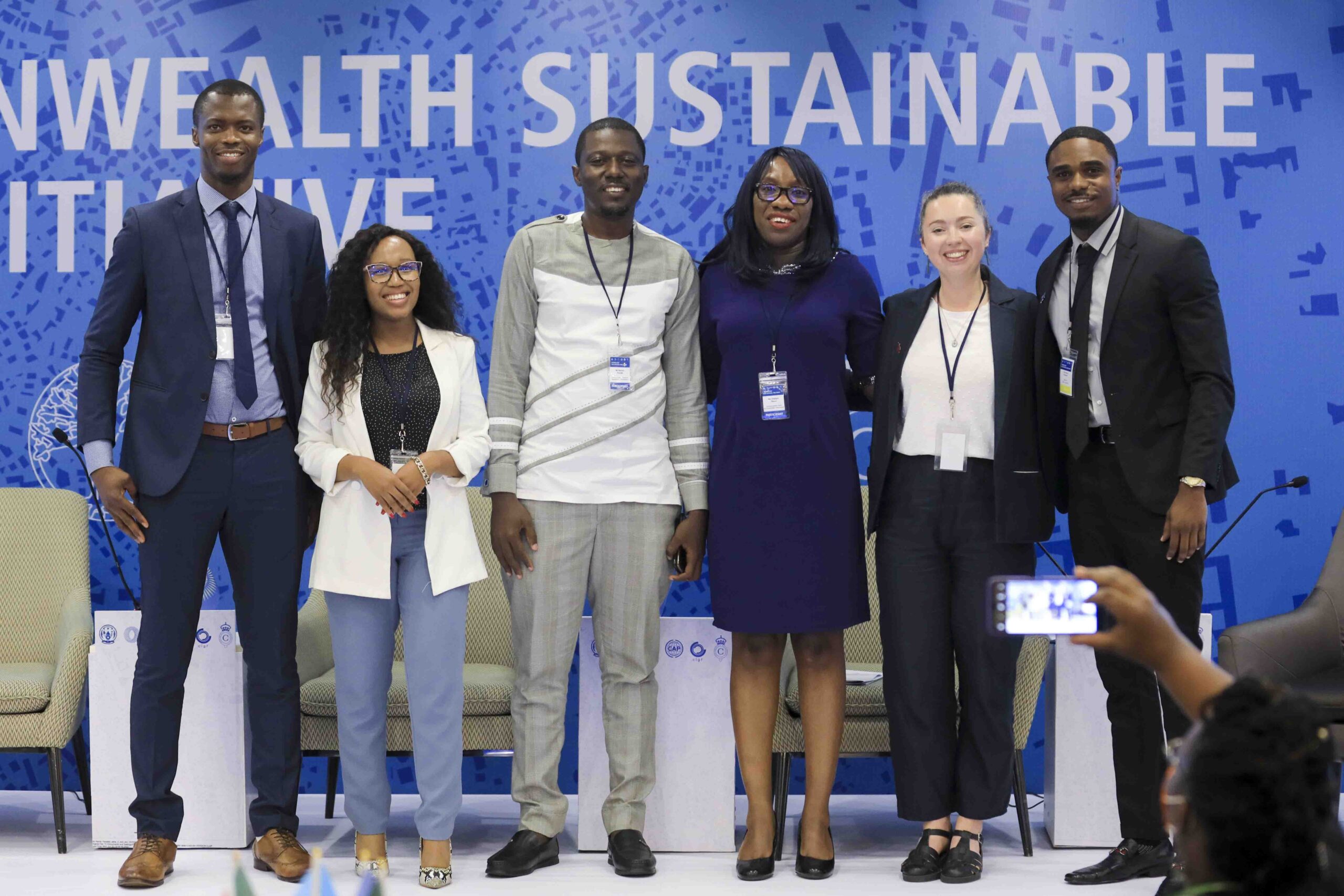
17.15 Summing-up and Close of Day 1
Moderator
Mr Peter Oborn, Senior Vice President, Commonwealth Association of Architects, UK
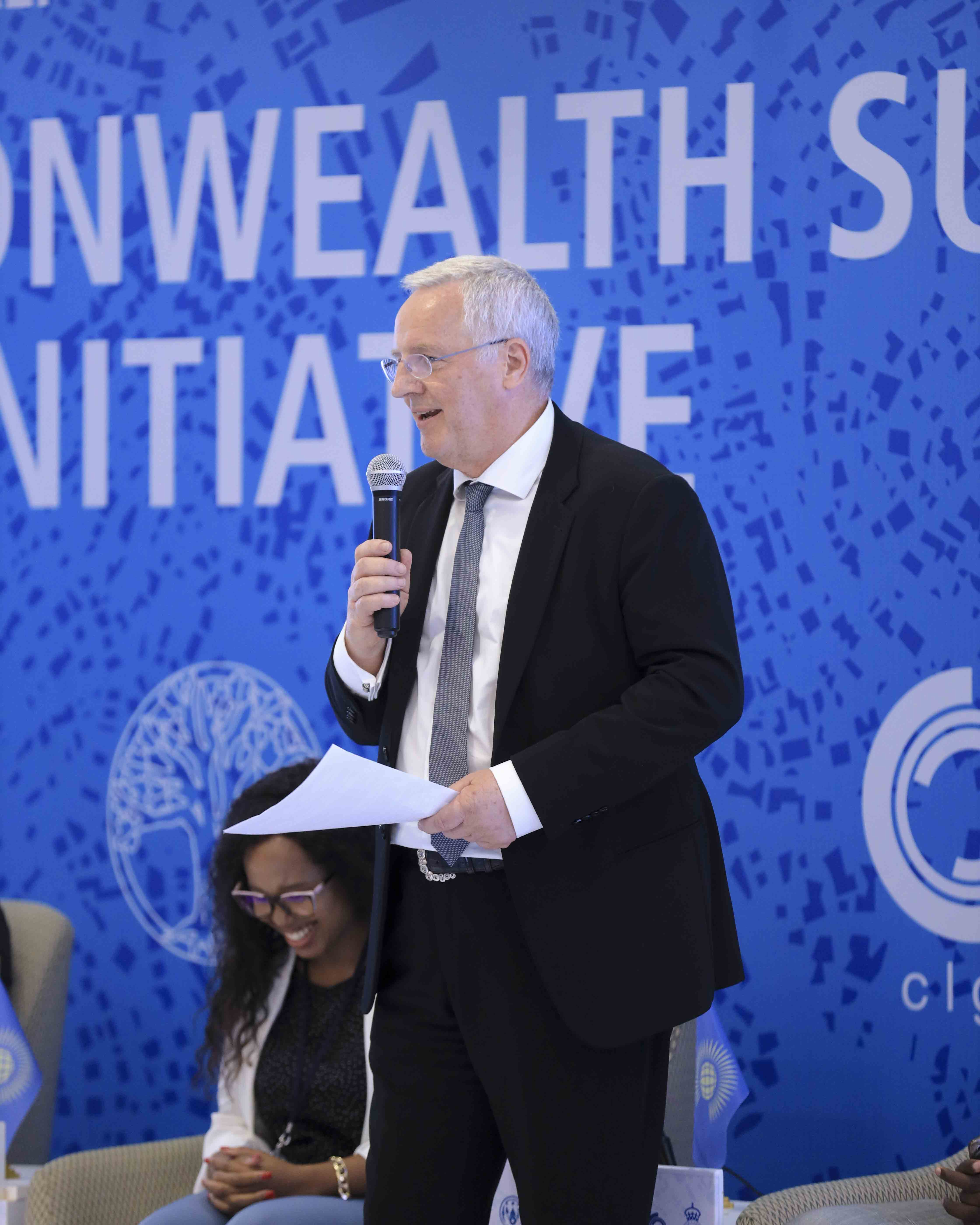
In his closing remarks, Mr Peter Oborn acknowledged the many takeaways from the day and reiterated the principles underpinning The Call to Action:
- The need to bring greater focus to sustainable urbanisation in Commonwealth policy making, including stronger alignment between economic and spatial policy at national and local levels.
- Recognition of the need and opportunity to mobilise the power of the Commonwealth across its various networks, to seize the Commonwealth advantage to help drive effective multi-level governance and multi-sector, multi-stakeholder collaboration.
- The need to work together on practical action to help deliver sustainable urbanisation across the Commonwealth, building on existing and emerging initiatives that are scalable and replicable.
This requires collective leadership from Heads of Government, together with academia, the built environment professions, local government and communities, empowered with the authority and resources to work towards sustainable urbanisation, ensuring that everyone moves ahead together.
the partners
The Call to Action on Sustainable Urbanisation across the Commonwealth has been developed jointly by the Association of Commonwealth Universities (ACU), the Commonwealth Association of Architects (CAA), the Commonwealth Association of Planners (CAP) and the Commonwealth Local Government Forum (CLGF), in collaboration with the Rwandan Ministry of Infrastructure (MININFRA), the Rwandan Ministry of Local Government (MINALOC) and The Prince’s Foundation, with support from other Commonwealth organisations, governmental, professional and technical partners. To read and download the full version of the Call to Action click here.
join us
If you are interested in learning more or becoming involved with the Call to Action on sustainable urbanisation across the Commonwealth, please contact us at: info@commonwealthsustainablecities.org.
acknowledgements
The organisers would like to extend their thanks to all those who supported our activities at CHOGM, be that moderators, panelists, participants and particularly those supporting logistics.
All images and videos are credited to: Event & Media Services Ltd, Kigali, Rwanda






